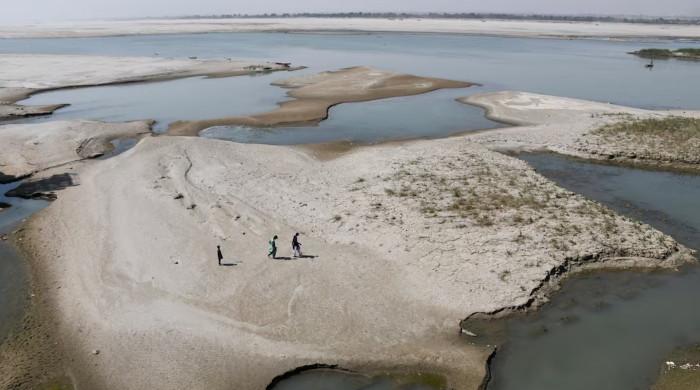In light of India’s continued hostility to Pakistan, characterized by repeated violations of bilateral and international obligations, it is imperative to investigate the recent development of the Indus Water’s Treaty (IWT) and the strategic suspension of the SIMLA Agreement.
Both instruments are fundamental to the legal and geopolitical relationship between the two countries. According to international law, Pakistan’s attitude remains in principle, well -founded and justifiable.
The Indus Waters Treaty, signed in 1960 by India and Pakistan with the World Bank as a guarantor, is a binding international agreement. The treaty assigns control of the eastern rivers (Ravi, Beas, Sutlej) to India and assigns Pakistan rights over the Western rivers (Indus, Jhelum, Chenab) subject to certain restrictions. It is important that Article XII explicitly determines that it “does not have to be terminated except by agreement from both governments”, which makes any attempt at unilateral withdrawal legally invalid and internationally unsustainable.
The treaty does not include any provision that allows unilateral withdrawal of any of the parties. The only legally allowed options are its continuation or change or termination through mutual consent. This shows a critical legal reality: While the Treaty allows for negotiated reform, it prohibits unequivocally enidicism.
Any Indian claim or act suggesting a unilateral exit from the Treaty is in direct violation of its express terms and the principles of international law.
This is not the first time India has threatened to disturb or unilaterally abandon the Indus Waters Treaty. On several occasions, Indian officials have made provocative declarations of redirection of water flows that are legally assigned to Pakistan, acts that Pakistan has rightly regarded as hostile and corresponding to a declaration of war. In response, Pakistan’s National Security Committee (NSC) has consistently released strong, evidence -based disguises, characterizing such movements as serious violations of international law and serious threats to regional peace and stability.
NSC has repeated Pakistan’s obligation to respond through legal, diplomatic and strategic channels in a way that is in line with both constitutional and international norms.
India’s ongoing attempt to circumvent or undermine the framework of the Treaty is clearly violating international legal obligations. Given the role of the World Bank as third -party guarantors, Pakistan has several ways available under international law to challenge India’s behavior, including the Treaty’s built -in dispute resolution mechanisms, the use of the international court and other international arbitration forums.
Pakistan must adopt a proactive legal strategy to defend his wandering rights. This includes invoking the dispute resolution provisions in Appendix F and G in the Treaty, whether by appointing a neutral expert or initiating the procedure for an arbitration court.
Given India’s repeated violations, Pakistan is also entitled to engage the UN and urge the World Bank to ensure compliance with the provisions of the Treaty.
When turning to the Simla Agreement in 1972, Pakistan’s recent suspension of the agreement is both legally justified and diplomatically strategically. For decades, India has abused the agreement to block international attention to the Kashmir question and insists on exclusive bilateralism. India’s unilateral revocation of Article 370 of its Constitution, its demographic technique in Indian -occupied Jammu & Kashmir, and its continued violations of human rights have made the bilateral mechanism.
The suspension of the SIMLA agreement reactivates jurisdiction and relevance of the UN security council solutions at Kashmir. These decisions explicitly require a plebiscite to allow the Kashmiri people to determine their political future.
By suspending the agreement, Pakistan is no longer legally limited to bilateral roads and can reinternalize Kashmir -twist and place it back on the global diplomatic and legal agenda.
The main reason for the deterioration of the relations in Indo-Pak lies in India’s aggressive and destabilizing behavior, including orchestrated false flag operations, disinformation campaigns and state-sponsored terrorism targeted at Pakistan. Events such as the Pulwama attack and the Balakot air attacks, which are largely considered as politically motivated provocations, exemplify India’s belligerent approach to regional security.
Pakistan’s legal attitude to both the Indus Waters Treaty and the Kashmir question is firmly rooted in international law. The international community – especially the World Bank and the UN – must play a more active role in holding India responsible. Meanwhile, Pakistan has to continue his legal advocacy, strategic diplomacy and principled resistance to protecting its sovereignty and ensuring regional peace.
Pakistan is on a strong legal foot with regard to the Indus Waters Treaty. The suspension of the SIMLA agreement represents not only a legal answer, but also a necessary strategic shift. These steps demonstrate Pakistan’s regular decision to confront India’s escalating hostilities with constitutional clarity, legal integrity and international legitimacy.
The author is a practicing spokesman for the Supreme Court in Pakistan with 25 years of legal status. He can be reached at: [email protected]
Disclaimer: The views expressed in this piece are the author’s own and does not necessarily reflect Pakinomist.tv’s editorial policy.
Originally published in the news



